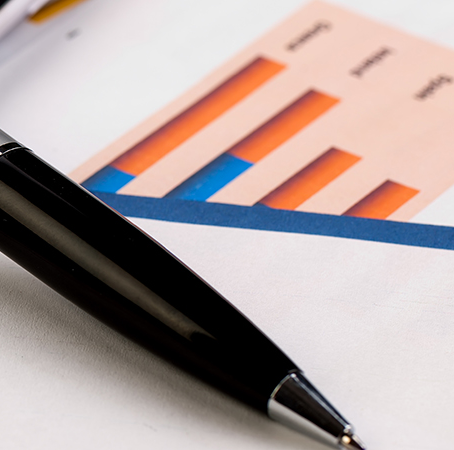Electricity discount triggers monthly deflation
According to Statistics Indonesia (BPS), Indonesia recorded monthly deflation of -0.76% MoM in Jan-25, marking the first deflation since Sep-24. This figure was significantly below our projection of +0.20% and the consensus forecast of +0.35% MoM. The primary driver of this deflation was a -9.16% MoM decline in the Housing, Water, Electricity, and Household Fuel sector, which contributed -1.44% to the overall inflation rate. This sharp decline was mainly due to a 50% reduction in electricity prices for households with a maximum power capacity of 2,200 VA. On the other hand, the Food, Beverages, and Tobacco sector recorded inflation of 1.94% MoM, driven by stronger food demand during the Isra Miraj and Chinese New Year celebrations. Volatile food prices surged to +2.95% MoM in Jan-25, up from +2.04% MoM in Dec-24. Core inflation also rose to +0.30% MoM in Jan-25 (vs. +0.17% MoM in Dec-24), primarily due to higher gold jewelry prices. In contrast, administered prices fell sharply by -7.38% MoM in Jan-25, reversing from +0.03% MoM in Dec-24, largely reflecting the electricity price discount. Looking ahead, we expect inflation to rise in Feb-25, driven by increased demand ahead of Ramadan and further hikes in non-subsidized fuel prices.
Annual inflation hits lowest level in 25 Years
Indonesia's annual inflation rate fell to 0.76% YoY in Jan-25, marking its lowest level in 25 years and well below Bank Indonesia's lower target of 1.5% YoY. This figure also came in significantly lower than both our estimate of 1.79% YoY and the consensus forecast of 1.86% YoY. The Housing, Water, Electricity, and Household Fuel sector was the largest contributor to deflation, contributing a -1.39% YoY decline to headline inflation rate. Prices in this category dropped sharply by -8.75% YoY in Jan-25. In contrast, the Food, Beverage, and Tobacco basket was the highest contributor to inflation at 1.07% YoY, with prices rising 3.69% YoY in. Meanwhile, volatile food inflation jumped to 3.07% YoY in Jan-25, up from 0.12% YoY in Dec-24. Core inflation also edged higher to 2.36% YoY in Jan-25 (vs. 2.26% YoY in Dec-24), exceeding both our estimate 2.33% YoY and the consensus forecast 2.29% YoY. On the other hand, administered prices recorded significant deflation at -6.41% YoY in Jan-25, reversing from +0.56% YoY in Dec-24. Looking ahead, we expect inflation to rise in 2025, driven by both domestic and external factors. Domestically, inflation is likely to increase due to the free lunch program and planned fuel subsidy adjustments. Meanwhile, the 12% VAT on luxury goods is not expected to have a significant impact on overall inflation. Externally, ongoing geopolitical tensions and a potential trade war could disrupt global trade and add to inflationary pressures. Considering these factors and January's inflation trend, we currently forecast FY25 inflation at 2.0% YoY.
Rupiah weakens amid BI-rate cut and capital outflows
The Rupiah depreciated by 1.65% MoM to Rp16,305/USD in Jan-25, driven by Bank Indonesia's decision to cut the BI rate by 25 bps to 5.75% and significant capital outflows. The rate cut led to a decline in the government bond yield for 2-year maturities by 15 bps MoM to 6.89%, narrowing the yield spread against the 2-year US Treasury yield from 280 bps in Dec-24 to 267 bps in Jan-25. Furthermore, Indonesia's bond market saw capital outflows of USD22.6 mn, while the stock market recorded outflows of USD229.3 mn in Jan-25. Meanwhile, the Fed maintained the FFR at 4.25-4.50% during its January meeting. Powell indicated that the Fed is in no hurry to cut rates, given the continued strength of the US economy. US inflation rose to 2.9% YoY in Dec-24, up from 2.7% in Nov-24, exceeding the Fed’s 2% target. The unemployment rate slightly declined to 4.1% in Dec-24 from 4.2% inNov-24. However, Trump has urged the Fed to cut rates immediately. He believes that increasing oil production, deregulation across industries, tax cuts, and improved government efficiency will help bring inflation down. Domestically, new regulations on Export Proceeds (DHE) now require exporters to retain 100% of their foreign exchange earnings within the domestic financial system for one year. This policy is expected to bolster Indonesia’s foreign exchange reserves and support Rupiah stability. Additionally, the government's plan to improve budget efficiency, with potential savings of Rp306 tn, could alleviate concerns over the fiscal deficit and boost investor confidence. Considering these factors, we expect the Rupiah to be Rp16,100/USD by year-end 2025.
















